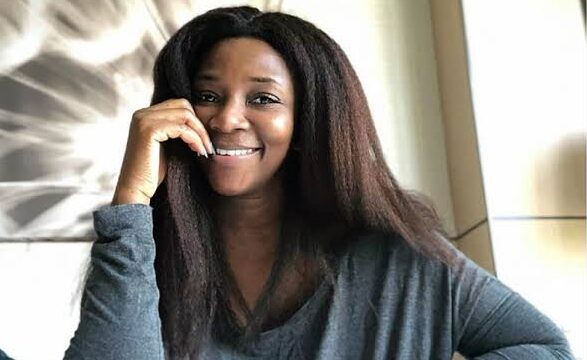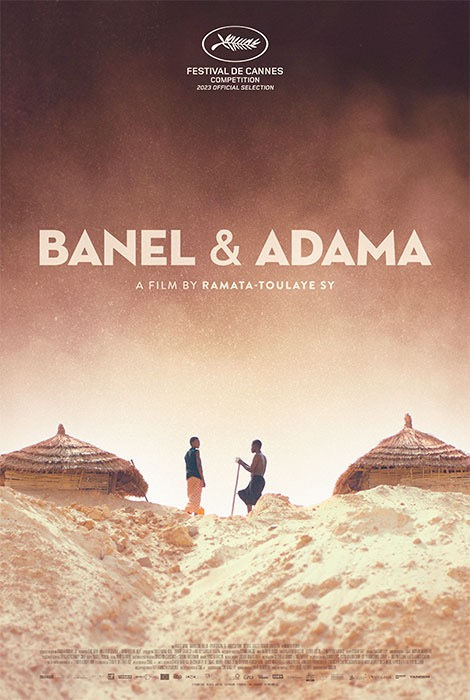African Women Redefining African Cinema
- Sarah Abimiku Lorentzen
- Oct 15, 2023
- 6 min read
Updated: Oct 16, 2023
6 Female Directors Bringing African Stories to Screens Around the World
Storytelling is incredibly central to African culture. Whether ceremonial or recreational, African storytelling plays a huge role in fostering community, passing down generational guidance, and preserving culture and history. These stories paint a diverse range of experiences across the continent often fortified with an element of spirituality – transcending the everyday human experience and transforming the mundane into a life embellished with the supernatural. Among the plethora of storytellers of today are African filmmakers who are harnessing the power of these narratives of those filmmakers are brilliant women representing their countries on a global stage. From the haunting romance of Atlantiques directed by Mati Diop to the political hues in Fig Tree directed by Aalam-Warque Davidian, the female-directed films listed below bring themes of love, sacrifice, and mysticism to our screens through a compassionate and proudly African lens.
While the global industry is still heavily male-dominated, African women are taking center stage at international film festivals. It is great to see more black women getting the recognition they deserve however, the emphasis on race and gender underscores the disparity in representation within the global industry. After her film, Banel e Adama was nominated for the prestigious Palme d’Or award at the Cannes Film Festival, director and screenwriter, Ramada-Toulaye Sy aptly noted in her interview with Variety that she hopes, “that we won’t be counting the Black directors, that we won’t be counting women…It means that there’s still something wrong, that there’s still something that hasn’t become completely normal and natural”. She is only the second black woman in the history of the Cannes Film Festival to compete for that award.
Furthermore, African films are still fighting for the same reverence other international markets have seen in Hollywood, often pigeonholed by stereotypical perceptions and struggling to meet American audiences. Even when considered for international categories African films have faced unusual obstacles such as the case of Lionheart, directed by Nigerian actress, producer, and filmmaker, Genevieve Nnaji that was disqualified from the Oscar’s International Feature Film category because the film was primarily shot in English. The New York Times covered the frustrated response to the Academy’s decision quoting a tweet by Nnaji stating that the film was proudly Nigerian and highlighting Nigeria’s colonial history to contextualize the English language within Nigeria. So what space exists to recognize and celebrate these stories?
The global issue of representation and opportunity that black and female communities experience can at times feel disheartening. However, as a film lover and creative myself, I am deeply inspired by these women claiming their space in the highest levels of their industry and resonate deeply with the transformative power of art. I hope that the growth in international recognition bolsters the growth of the local industry and infrastructure where the successes of African filmmakers and their art is not only measured by their presence in international film circuits but also within the countries their stories are rooted in. I also hope through films like the ones listed below, audiences around the world will find themselves drawn in – not as strangers severed by difference, but connected through universal themes and eager to explore more. In that way artists and audiences alike can play a role in helping African art stand outside the imposed borders of its expression.
1. Ramada-Toulaye Sy, Senegal

Ramata-Toulaye Sy was born in Bezons, France, studied at La Fémis film school in Paris. and now works between Paris and Dakar. She co-wrote Atiq Rahimi’s Our Lady of the Nile (19), which screened at the Festival. Her first short film as director, Astel (21), screened at the Festival, where it won the Short Cuts Share Her Journey Award. Banel & Adama (23), her first feature, is her latest film.
Film: Banel e Adama (2023)
Genre: Romance/Drama
Film Synopsis: “A tragic romance follows two lovers on a quest for self-possession in the face of tradition and against the terrestrial majesty of the Sahel.”
2. Alice Diop, Senegal
Alice Diop, born 1979 in Aulnay-sous-Bois, France is a director of Senegalese descent with a Masters in history and a Doctorate in visual sociology. She studied documentary filmmaking at La Femis in Paris and has written and directed several documentaries. In 2011, Alice Diop's feature documentary Danton’s Death won the Library Award at the Cinéma du Réel Festival as well as the Etoile de la Scam 2012 Award. Shot in 2015, Towards Tenderness had its World Premiere at Creteil Women International Film Festival and its US Premiere at the New York African Film Festival. It won Best Short Film at the French César Awards in 2017. On Call, her second feature-length documentary, won the Prix de l’Institut français Louis Marcolles at Cinéma du réel in 2016. Her 2020 documentary, Nous, won the Encounters Award at the 2021 Berlin International Film Festival.
Film: Saint Omer (2022)
Genre: Drama
Film Synopsis: “Rama (Kayije Kagame), a successful journalist and author living in Paris, has come to Saint Omer, a town in the north of France, to attend the trial of a young Senegalese woman, Laurence Coly (Guslagie Malanda), who allegedly murdered her baby daughter. Although she admits to killing the child, she cannot or will not provide motivation, claiming it was a kind of sorcery out of her control ().”
3. Mati Diop, Senegal

Mati DIOP (1982, France) lives and works in Paris and is both filmmaker and actor. She directed her first four short films while attending Le Fresnoy and Le Pavillon (Palais de Tokyo). She is the niece of the great Senegalese film director Djibril Diop Mambéty, and made Mille soleils (2013) as a homage to his Touki bouki. In Rotterdam, Diop has won a Tiger Award for Short Films twice: in 2010 for Atlantiques and in 2012 for Big in Vietnam. In 2014, the filmmaker was in Rotterdam as a jury member for the short films competition. Her latest feature, Atlantique(2019), won the Grand Prix at the 2019 edition of the Cannes Festival. She is the first black female director to participate in the Cannes Competition.
Film: Atlantiques (2019)
Genre: Drama/Romance
Film Synopsis: “The construction workers have not been paid for months, so they leave the country via the ocean, in search of a brighter future. Among them is Souleiman, the lover of Ada, who is betrothed to another. Several days later, a blaze ruins the young woman’s wedding and mysterious fevers start to take hold of the local inhabitants. Little does Ada know that Souleiman has returned…”
4. Aalam-Warque Davidian, Ethiopia

Aäläm-Wärqe Davidian, commonly credited as Alamork Davidian in English, is an Ethiopian-Israeli film director. Her directorial debut, Fig Tree, was an Ophir Award nominee for Best Picture in 2018. Fig Tree was based in part on her own childhood in Addis Ababa prior to emigrating to Israel. She is married to film director and producer Kobi Davidian. At the 2018 Toronto International Film Festival, she won the Eurimages Audentia Award for Best Female Director for Fig Tree.
Film: Fig Tree (2018)
Genre: Drama
Film Synopsis: 16 year old Jewish Mina, is trying to navigate between a surreal routine dictated by the civil war in Ethiopia and her last days of youth with her Christian boyfriend Eli. When she discovers that her family is planning to immigrate to Israel and escape the war, she weaves an alternate plan in order to save Eli.
5. Rungano Nyoni, Zambia

Rungano Nyoni is a Zambian-Welsh director and screenwriter. She is known for the film I Am Not a Witch, which she wrote and directed. The film won Nyoni the BAFTA for Outstanding Debut in 2018 and has also garnered accolades from international film festivals. Her 2009 film, The List, won the Welsh BAFTA Award for Best Short Film.
Film: I Am Not A Witch (2017)
Genre: Drama
Film Synopsis: “In a remote Zambian community a girl is denounced as a witch and sent on a trajectory of exploitation, as a tethered member of a witches' camp, a witch for hire and a tourist exhibit.”
6. Genevieve Nnaji, Nigeria

Genevieve Nnaji is a Nigerian actress, producer, and director. She won the Africa Movie Academy Award for Best Actress in a Leading Role in 2005, making her the first actor to win the award. In 2011, she was honoured as a Member of the Order of the Federal Republic by the Nigerian government for her contributions to Nollywood.Her directorial debut movie, Lionheart, is the first Netflix film from Nigeria and the first Nigerian submission for the Oscars.

Film: Lionheart (2018)
Genre: Comedy
Running a company can be challenging, especially for a female in a male-dominated industry. Looking to prove her worth, Adaeze steps up to the challenge when health issues force her father to take a step back.
Article by Sarah Abimiku Lorentzen











Comments